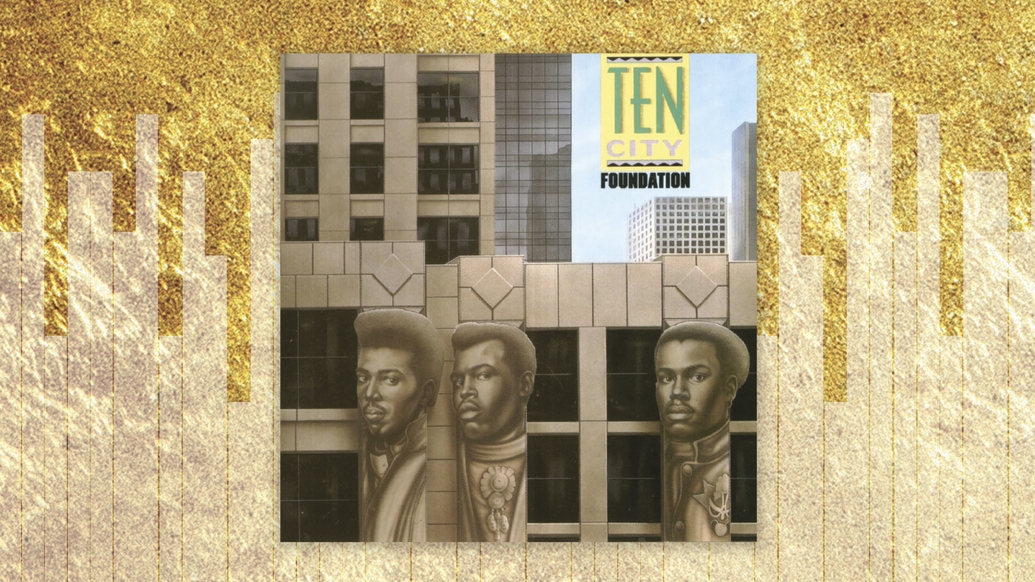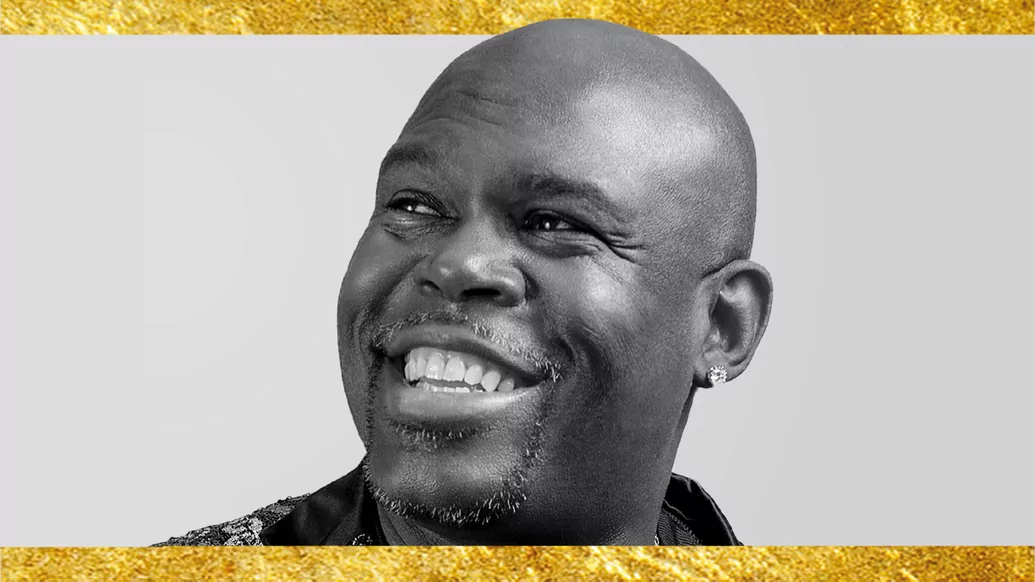
Solid Gold: How Ten City's 'Foundation' took vocal house to new heights
With tracks like ‘That’s The Way Love Is’ and ‘Right Back To You,’ Ten City’s 1989 debut album, ‘Foundation,’ set the standard for what vocal house could be. Here, Ben Cardew learns its story
If songwriting and arrangement were as valued as sonic innovation in the history of dance music, then Chicago vocal house group Ten City would be at the very peak of critical acclaim. Not that Ten City are obscure exactly — for a certain breed of house fan, the very mention of their name is enough to bring the dancing legs out in raptures. But listening to a song like ‘That’s The Way Love Is,’ which opens the group’s 1989 debut album ‘Foundation,’ it seems inconceivable that Ten City aren’t one of the biggest dance acts on the planet, so radiant is the song’s tender glow.
‘That’s The Way Love Is’ is the kind of classic song you could imagine The Temptations delivering to a misty-eyed audience on the Ed Sullivan show in the 1960s, or Frank Ocean dropping as the summer hit of 2021, a timeless tale of love lost that plays out to ecstatic strings and bumping house piano. For house music fans, it feels like a genuine privilege that Ten City blessed our genre with a song this eternally immaculate.
Ten City’s musicality and innate songwriting talent reflect the members’ musical backgrounds. The band was formed by vocalist extraordinaire Byron Stingily, guitarist Herb Lawson and keyboard player Byron Burke (the three originally operating as Ragtyme) under the watchful eye of house music legend Marshall Jefferson.
“I heard him [Stingily] sing on this record called ‘Funny Love’ [by Dezz 7], and I thought his voice was nice, but the lyrics were sensational,” Jefferson said in a recent interview for 909originals. “When I started working with him, I think we had done a couple of sessions before we did the song ‘I Can’t Stay Away’ [as Ragtyme]. That’s when the power came out. He brought out the diaphragm on that session. That’s when he started singing in the higher frequencies."

It’s easy to see why Jefferson — already a veteran of house music, with quintessential songs like ‘Move Your Body’ to his name — was so impressed. Stingily’s vocals soar with the kind of angelic purity that doesn’t quite rule out the possibility of a devilish good time, his brilliantly flawless tone bringing to mind disco legend Sylvester. But Stingily’s technical prowess never overshadows his search for emotion: when Stingily sings that he wants to give you devotion (on the group’s debut single, ‘Devotion’), you really believe that he’s going to be by your side forever, his passion both achingly pure-hearted and sneakily sexual.
The group signed to Atlantic, a label with a long and storied history in soul music, in 1988, deciding on the name Ten City (short for “intensity” but also carrying the idea of the perfect 10). ‘Devotion’ was an instant classic, combining a euphoric vocal with a wonderfully aquatic guitar lick, dreamy synthesized strings and a tough house beat that showcased the group’s ineffable musical understanding. The song remains an anthem to this day.
“When we did ‘Devotion’, I knew that it would be a hit record, and I remember telling Marshall that I think it’s going to be a record that people will still be playing 30 years from now,” Stingily told 909originals. “When it’s played here in Chicago today, people still throw their hands in the air.”
Both ‘Devotion’ and ‘That’s The Way Love Is’ feature on ‘Foundation’, which remains the key release for Ten City and, arguably, vocal house music as a whole. There, the two songs slot in snugly alongside ‘Right Back To You’, the band’s third single and another classic, with its soaring chorus and nagging keyboard line.
Vintage songwriting gives ‘Foundation’ a timeless edge, but the focus on songs shouldn’t obscure the album’s excellent production and arrangement. The rolling piano and drum machine base of songs like ‘Right Back To You’ might sound very much of their time, but the beats are immaculately programmed, leaping out of the record with the zeal of invention while the band coat their songs in glorious arrangements of strings, electronic effects and wandering bass.
‘For You,’ for example, offsets slightly clichéd lyrics with a brass and string arrangement of such effortless class, it could have come right off a Motown record. This is the epitome of Ten City as a band: every member brings something different to the mix, playing off the song in a wonderfully simpatico musical alchemy, with the added contributions of “Mighty” Earl Young on (acoustic) drums, and Eddie Stockley and, later, gospel house star Kenny Bobien on backing vocals.
Listening back to ‘Foundation’ today, it’s fascinating how Ten City absorbed the modish influence of new jack swing, Teddy Riley’s fusion of R&B and hip-hop, to forge a link between R&B and house, two forms of modern Black music that have much more in common than is typically thought. ‘Where Do We Go?,’ which was mixed by Steve “Silk” Hurley, renders new jack’s shuffling beats at a house tempo, a beguiling blind alley you wish more people had gone down.

"Stingily’s vocals soar with the kind of angelic purity that doesn’t quite rule out the possibility of a devilish good time, his brilliantly flawless tone bringing to mind disco legend Sylvester"
Not for nothing did ‘Foundation’ reach No. 49 on the US Top R&B/Hip-Hop Albums chart, the kind of placement that feels almost impossible for a house act today. The album also nods to acid house, with the ‘Deep House Mix / Extended Version’ of ‘That’s The Way Love Is’ replacing the song’s much-loved string arrangement with a brooding 303 line, a near-sacrilegious decision that pays off in filthy fashion.
‘Foundation’ would prove influential in the rise of vocal house and (US) garage, two sounds that remain in health to this day. Ten City were not the first act to combine songwriting with house music — it’s hard to say exactly who did this first, although ‘Love Can’t Turn Around’ by Farley “Jackmaster” Funk and Jesse Saunders, featuring Darryl Pandy on vocals, combined song structure with house beats back in 1986 — but Ten City were one of the first acts to take song-led vocal house into the charts. ‘That’s The Way Love Is’ reached No.1 on the US dance chart and No. 8 in the UK singles chart, while ‘Foundation’ made No. 22 in the British albums chart.
That the group maintained this creative spurt over four albums — following ‘Foundation’ with ‘State Of Mind’ in 1990, ‘No House Big Enough’ in 1992, and ‘That Was Then, This Is Now’ in 1994 — made Ten City a marker for house music as a serious creative force, one that would outlive its initial novelty appeal to produce music for both club and home listening. ‘Foundation’s influence could also be felt in the nascent deep house scene: the ambulant bass, stuttering organ and spacey percussion of ‘Foundation’ album track ‘Suspicious’ was but a cosmic skip from what Larry Heard was doing in 1989 on Mr. Fingers’ ‘What About This Love,’ a foundational text for deep house.
In 2021, house beats + soulful songwriting is essentially the reigning pop sound, thanks to records from the likes of Dua Lipa (‘Future Nostalgia’) and Lady Gaga (‘Chromatica’), while more underground singers like Jessie Ware and Róisín Murphy keep the combination vital for an older audience. These artists may not know it, but they are, in many ways, the children of Ten City, a band who established vocal house as an artistic force and chart phenomenon, while penning some of the best tunes of the last few decades.
After going on hiatus in the 1990s, Ten City returned in 2021, with Stingily and Jefferson reuniting for an album on Ultra Music. ‘Judgement’ contains some excellent new songs — notably, the opener ‘Be Free’ — but the undoubted highlights, for ravers new and old, are new versions of ‘Devotion’ and ‘That’s The Way Love Is,’ which prove, 30 years on, that you just can’t keep a good house song down. ‘Foundation’ is well named, then, with Ten City’s classic first album providing the groundwork on which so much modern dance music is based.





